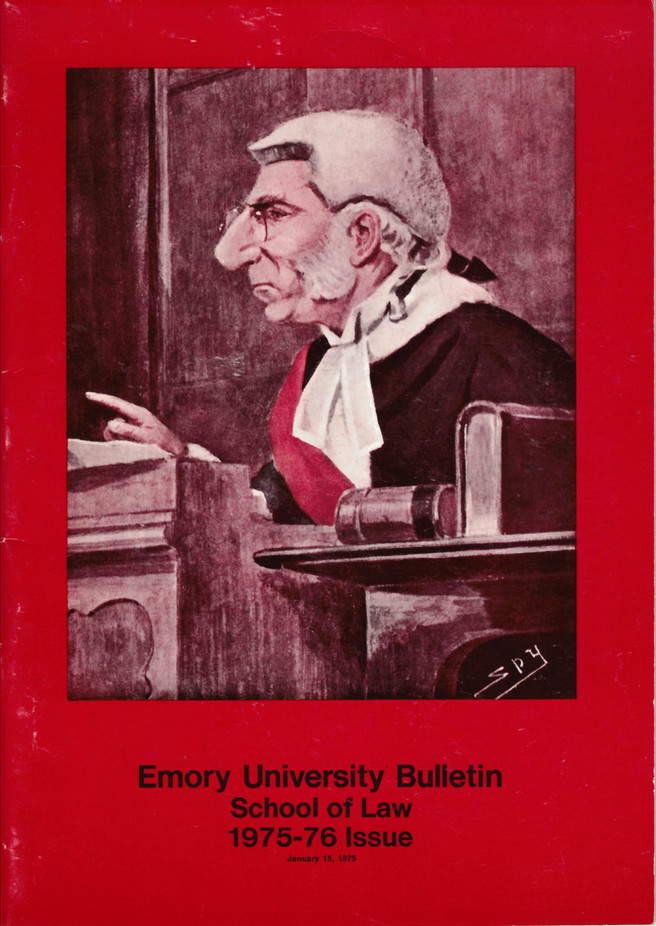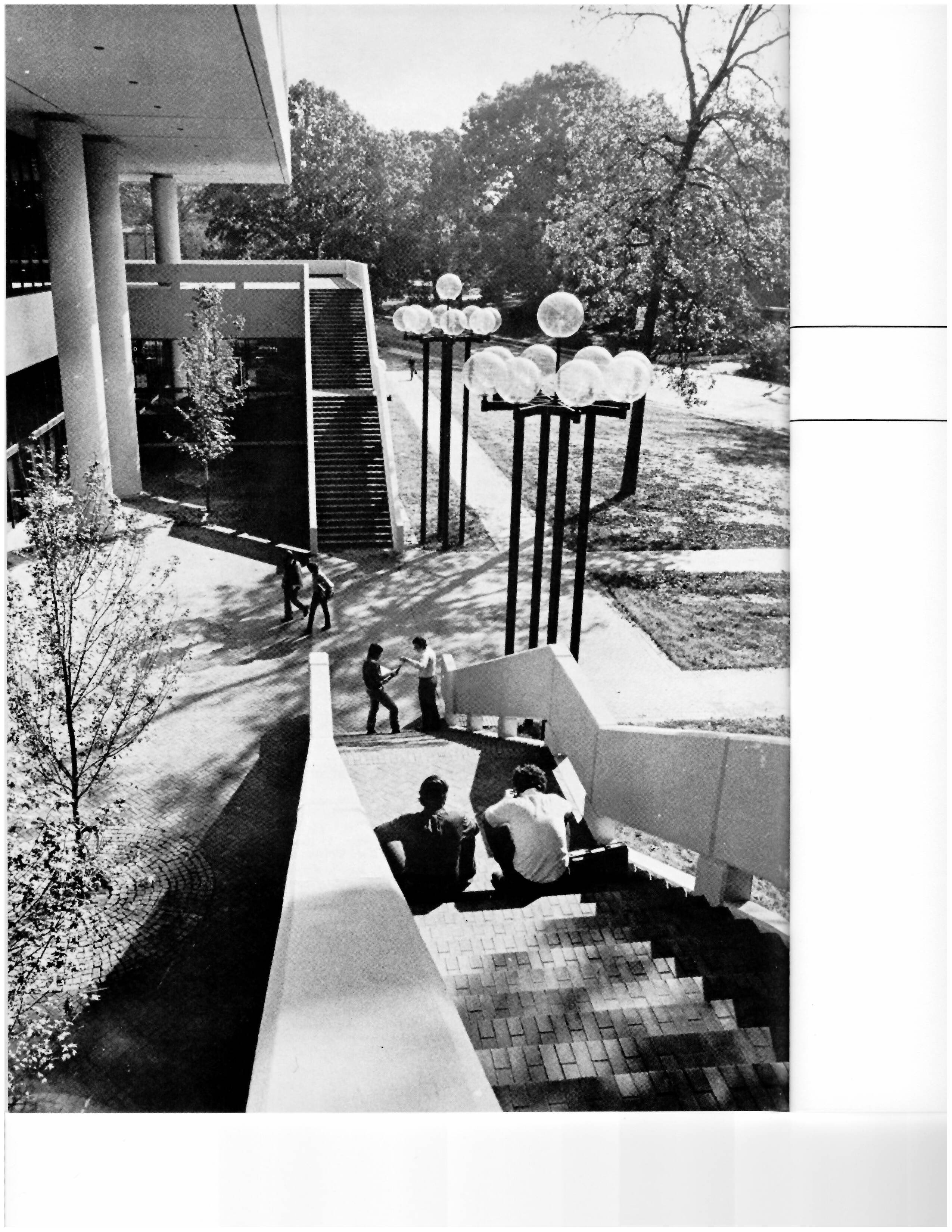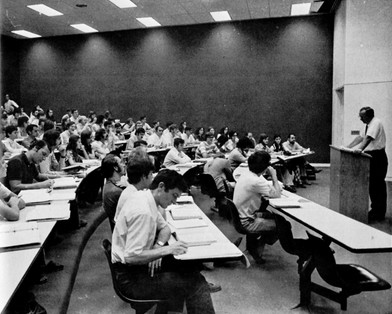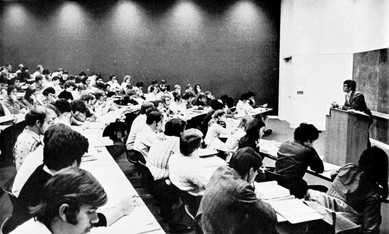Golden Eagle remembers law school of years ago
Charlie Henck 75L describes himself as “brand loyal,” and for more than 50 years, that brand has been Emory University School of Law.


Following graduation in 1969 and basic training at Forts Benning and McClellan, Henck returned to the Atlanta area and his job at C&S National Bank (now part of Bank of America). Quickly, he learned that the banking industry was not for him. He decided to try law school instead; people had been telling him for years that his debate skills would be of benefit there. Henck was accepted to Emory Law’s Class of 1975, which meant he would be one of the first students to take classes in the brand-new Gambrell Hall.
Day One
Henck’s very first law class was a one-hour course about agency, where students learned both principal/agent law and how to be a law student—how to read and prepare cases. His other first-year classes included Torts, Property, Criminal Law, and Evidence. At the time, Emory Law students considered Civil Procedure to be one of the most difficult classes, as it was based on jurisdictional theory rather than rule memorization. Presiding over the law school was Dean Ben Johnson, a former Georgia state senator and Georgia deputy attorney general.
Concerning technology on campus, Henck recalls when LexisNexis came to Emory Law. To access the research database, students would go to the law library, sit in front of a CRT monitor, dial a specific number, wait for the “handshake” tone, hang up, and then conduct their on-screen Boolean searches. During classes, most students took notes by hand, writing in notebooks. Some typed their exam answers on a typewriter; these students often took their exams in separate rooms, due to the noise.
Scholars not forgotten
Henck has fond memories of his Emory Law professors. He took Civil Procedure with labor arbitrator William Ferguson, who had “wonderful mutton chop sideburns.” Henck’s contracts professor was David Orentlicher, who spent weeks dissecting Hawkins v. McGee, the infamous hairy hand case. Every day, Professor Orentlicher carried his own law school notes with him to class—just in case they could be a resource for the students. He was a campus favorite and later earned one of the school’s teacher of the year awards. Henck also took classes with the soft-spoken Professor William “The Bull” Agnor, who used a personal microphone so that students in the back of the lecture hall could hear him.
Over the course of law school, Henck took many courses with adjunct law professors who worked in tax law. He found this to be a favorite area of law—he was interested in tax and did well in class. During his third year, as his career was making a beeline towards tax law, Henck also decided to take the Georgia Bar Exam. At that time, students were allowed to take the bar exam during their last year of law school. To prepare, Henck and two classmates pooled their money together and purchased the three-volume Barbri exam prep books. Henck sat for the bar exam in February of 1975, and as he was preparing to take his final law school exam, he received the good news: He’d passed the bar.
Shortly after graduation, Henck moved to Washington, DC, where he worked at the Internal Revenue Service’s Office of Chief Counsel. In 1980, he joined Ballard Spahr, where he has spent the last 45 years as a tax attorney, counseling clients on the tax attributes related to capital infrastructure. Much of his practice focuses on tax-exempt bonds.
In addition to his work, Henck continues to stay connected with Emory Law: “I really loved my time there; it was a great experience. It shaped who I am as a lawyer—taught me to think, read between the lines, and understand principles.”
Henck and his firm have hosted Emory Law events in Washington, DC. He says that whenever he meets an Emory Law student, he’s happy to tell them that they’ve made an excellent choice.







